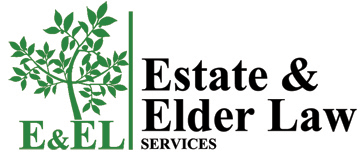Understanding Medicaid’s Child Caretaker Exception

We work with scores of clients to help them protect their assets and still qualify for Medicaid to pay for skilled care at home or nursing home bills. Often these clients are ready to give away everything they have to reduce their assets and income and qualify for Medicaid – and are happy when we say: “Not so fast.”
We can help you move the things you own into trusts so they don’t ‘count’ when Medicaid looks at your finances. We’ve written about this type of trust in other blogs, but today we want to look at an exception which works for many people – the child caretaker exception.
In general, the Medicaid transfer rules prohibit a person from transferring money to someone else exclusively to qualify for Medicaid benefits. But the child caretaker exception allows a parent to transfer his/her house to a child who has been:
- Living in the house with the parent for at least two years.
- Providing care that has kept the parent out of a nursing home.
When those two criteria are met, transferring the home does not violate Medicaid look-back rules. A child, for the purposes of this rule, must either be a biological or adopted child. Other relatives – step-children, grandkids, nephews, etc. – do not qualify. The purpose of this rule is to help keep elderly folks out of a nursing home for as long as possible.
In a recent court case out of Massachusetts, Coko v. Tsai, the court analyzed what evidence should be sufficient to prove a child caretaker exception case. Coko was an elderly woman who transferred a life estate in her home to her daughter who had lived in the home and cared for Coko for at least two years before Medicaid was needed. Coko applied for Medicaid and was denied benefits for a certain amount of time because she transferred the house to her daughter. Coko took her case before a hearing officer and presented evidence to prove the child caretaker exception, including copies of deeds, medical records, an elderly services records review, and affidavits of herself and her daughter. Unfortunately, the hearing officer upheld the denial of benefits. Coko appealed to a trial court.
The trial court in this case found that the evidence to establish the child caretaker exception was in the record. The trial court noted that the hearing officer did not discuss the evidence in the decision; the hearing officer did not express what evidence was found credible or what evidence was an attempt to skirt Medicaid rules. The trial court stated that it seemed as if the hearing officer had an intent to deny the case and did not consider the evidence.
This case helps clarify the evidence you required to make a child caretaker exception case. Here are the top two:
-
Proof that the child lived in the home for at least two years before the parent was institutionalized. Possible evidence includes:
- Driver’s license records
- Voter registration records
- Tax returns
- Utility bills
- Affidavits
-
Proof that the child provided care to the parent that kept the parent out of an assisted living or nursing home facility. Possible evidence includes:
- A written record of events over the two years that would have resulted in institutionalization, if not for the child caretaker’s assistance
- Medical records
- Statements by friends, family, or neighbors that collaborate the care
- Affidavits of the parent and child
- Care log of the care the child provided
- Doctor’s letter
- Documentation from an institution stating that the medical conditions of the parent would likely require institutionalization
Some states, like New Jersey, have attempted to add a requirement to the child caretaker exception - that the child is not able to work outside of the home in order to qualify. However, these additions to the federal rule have been litigated and New Jersey is backing off this requirement.
An experience elder law attorney, like those here at Estate & Elder Law Services, can help you understand this important exception and help you or your loved one qualify for Medicaid. Give us a call at 302-651-0113 to get started.
